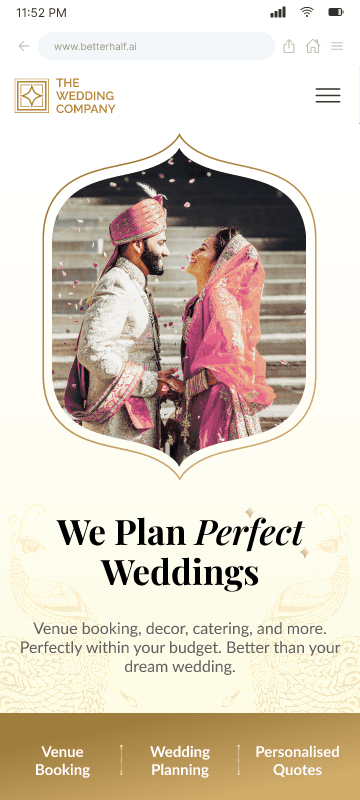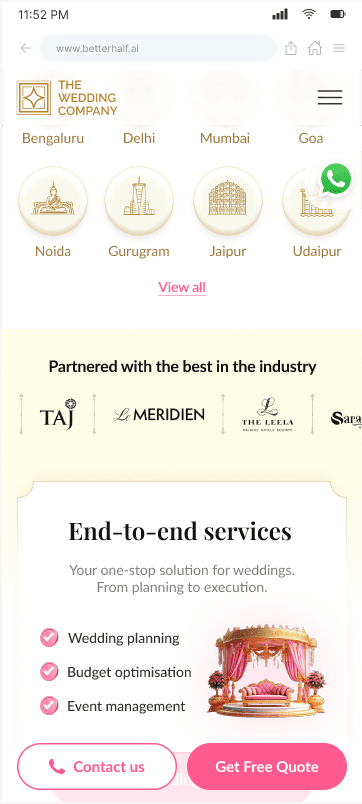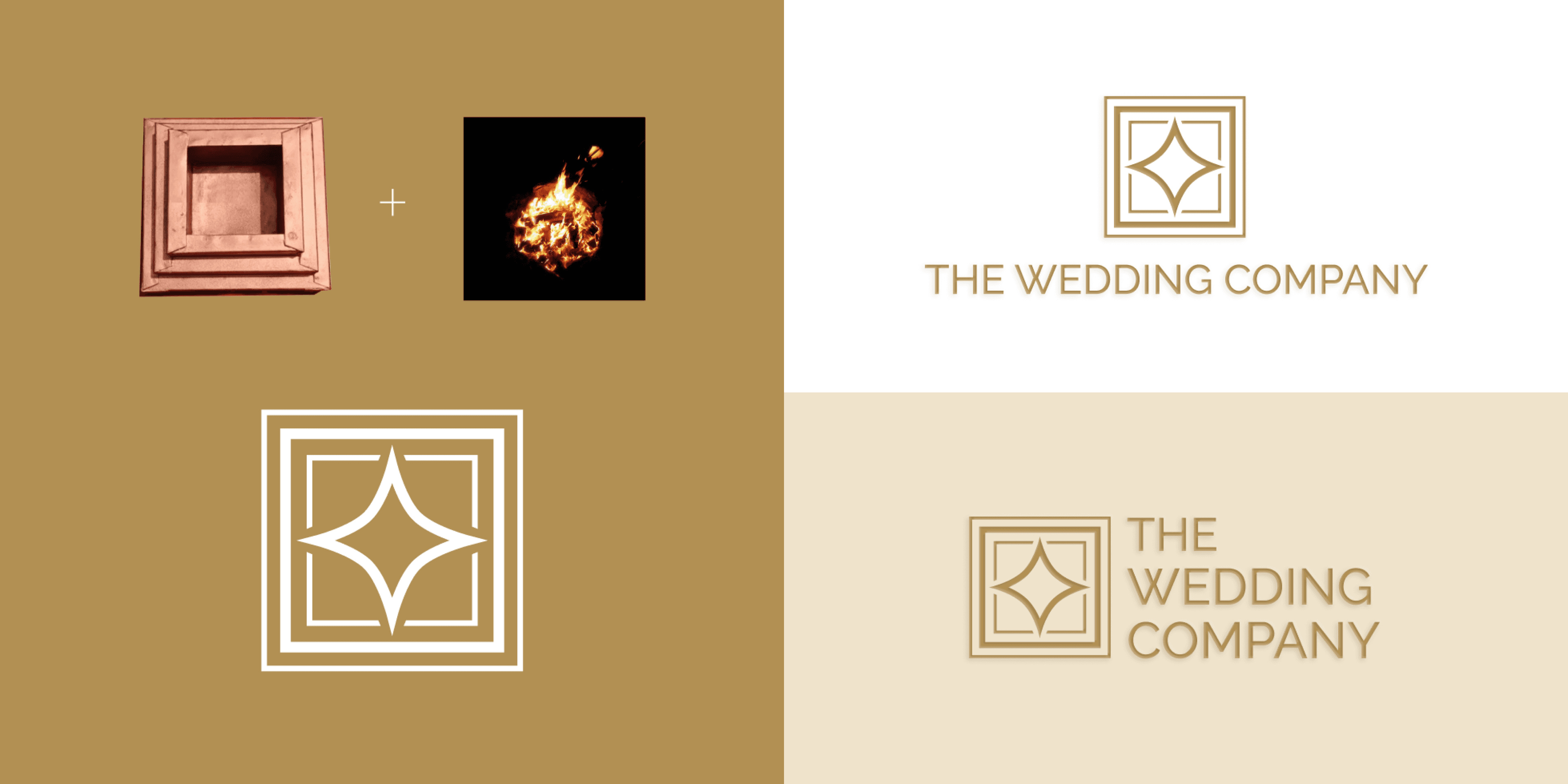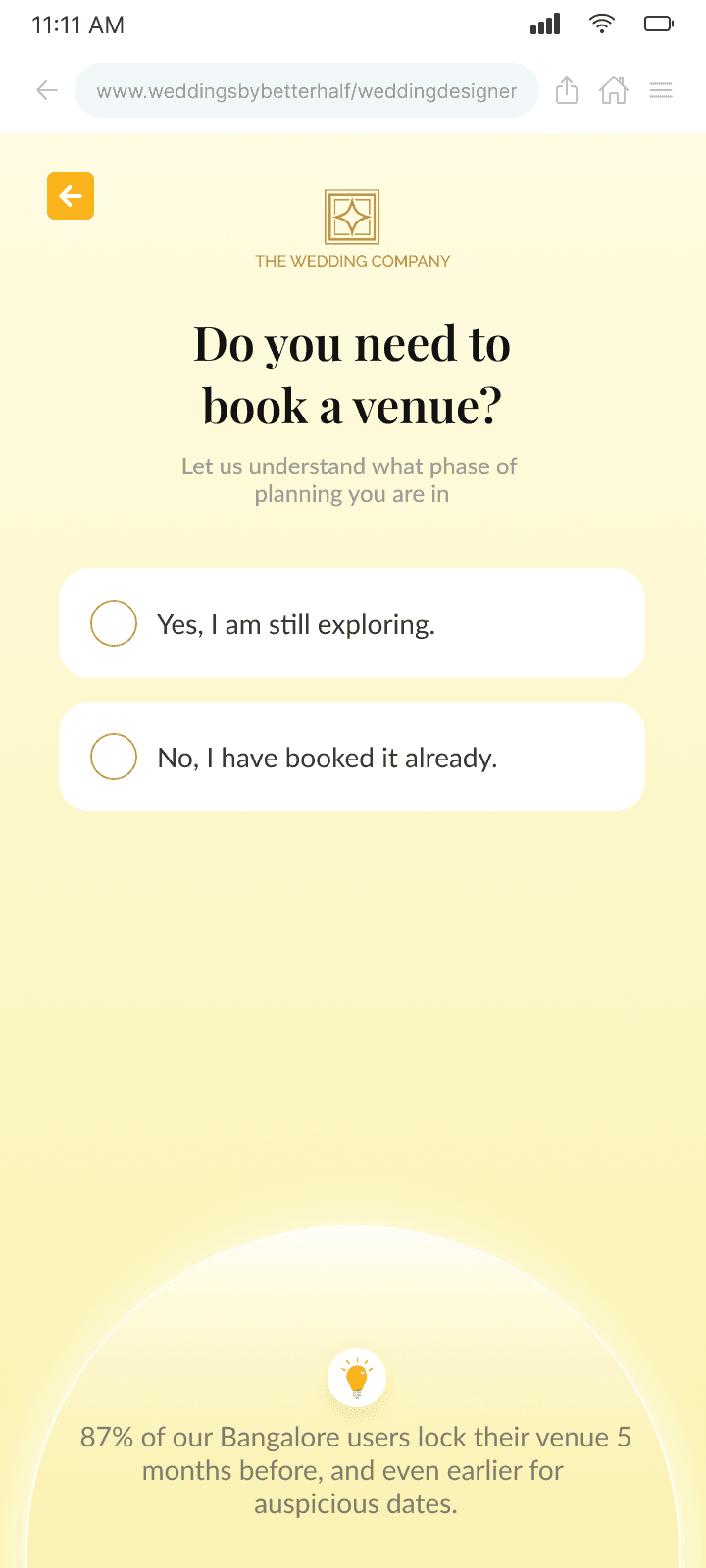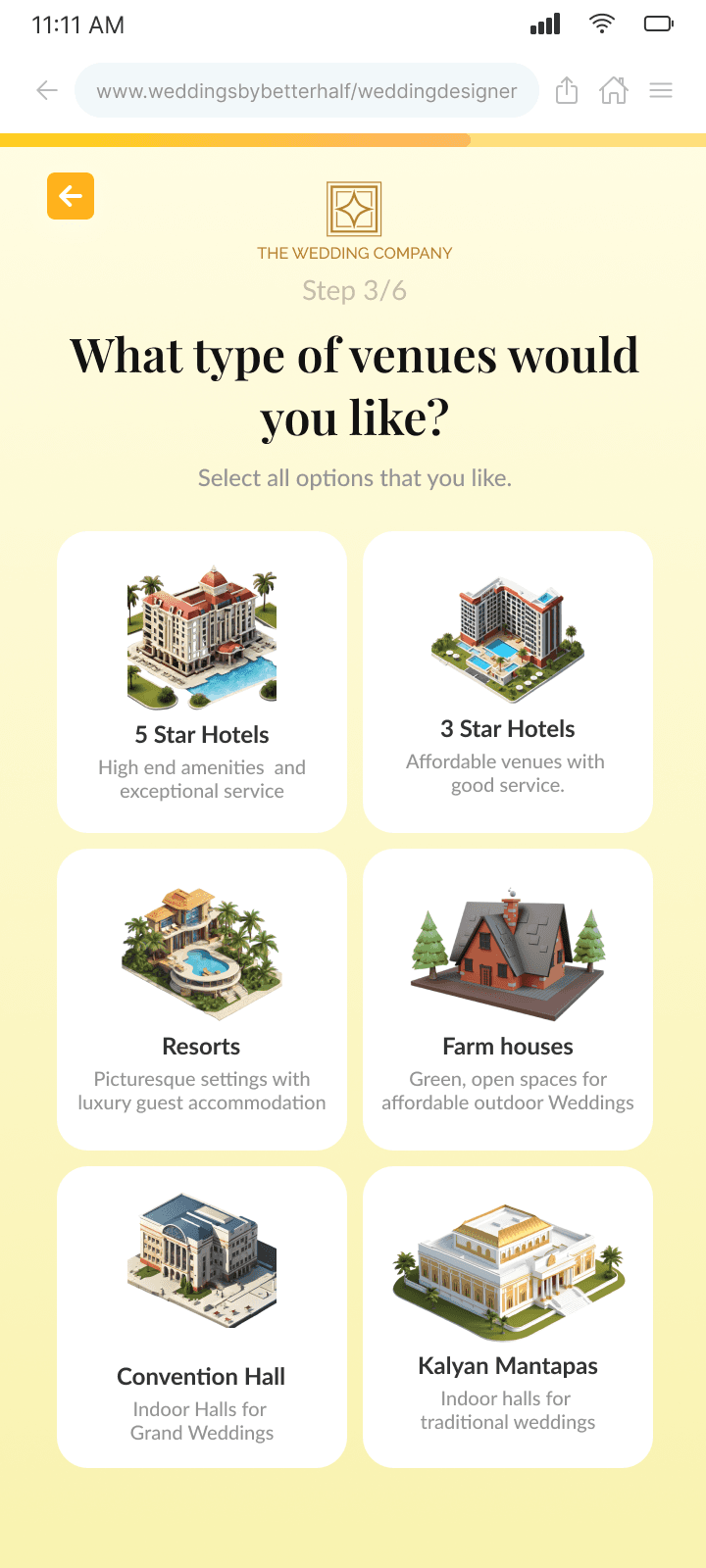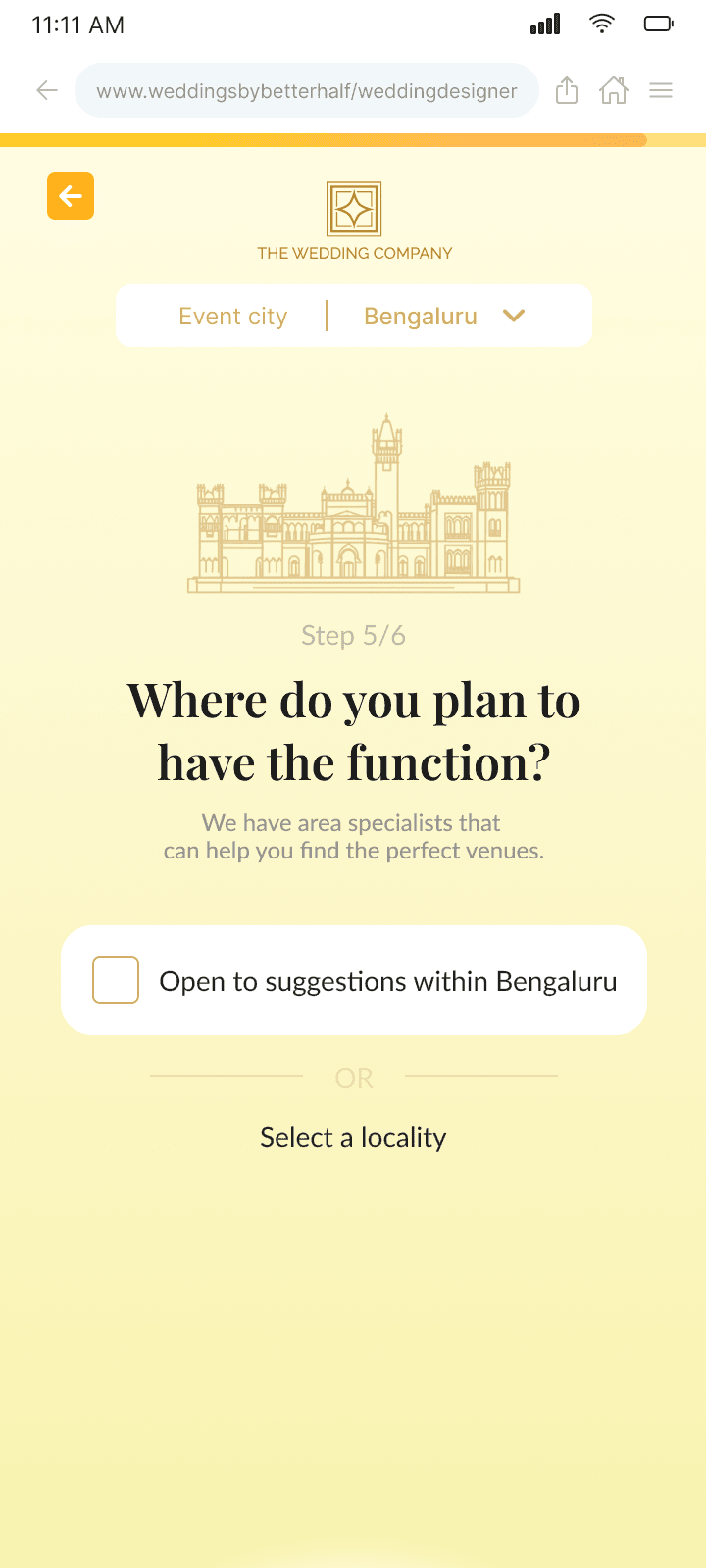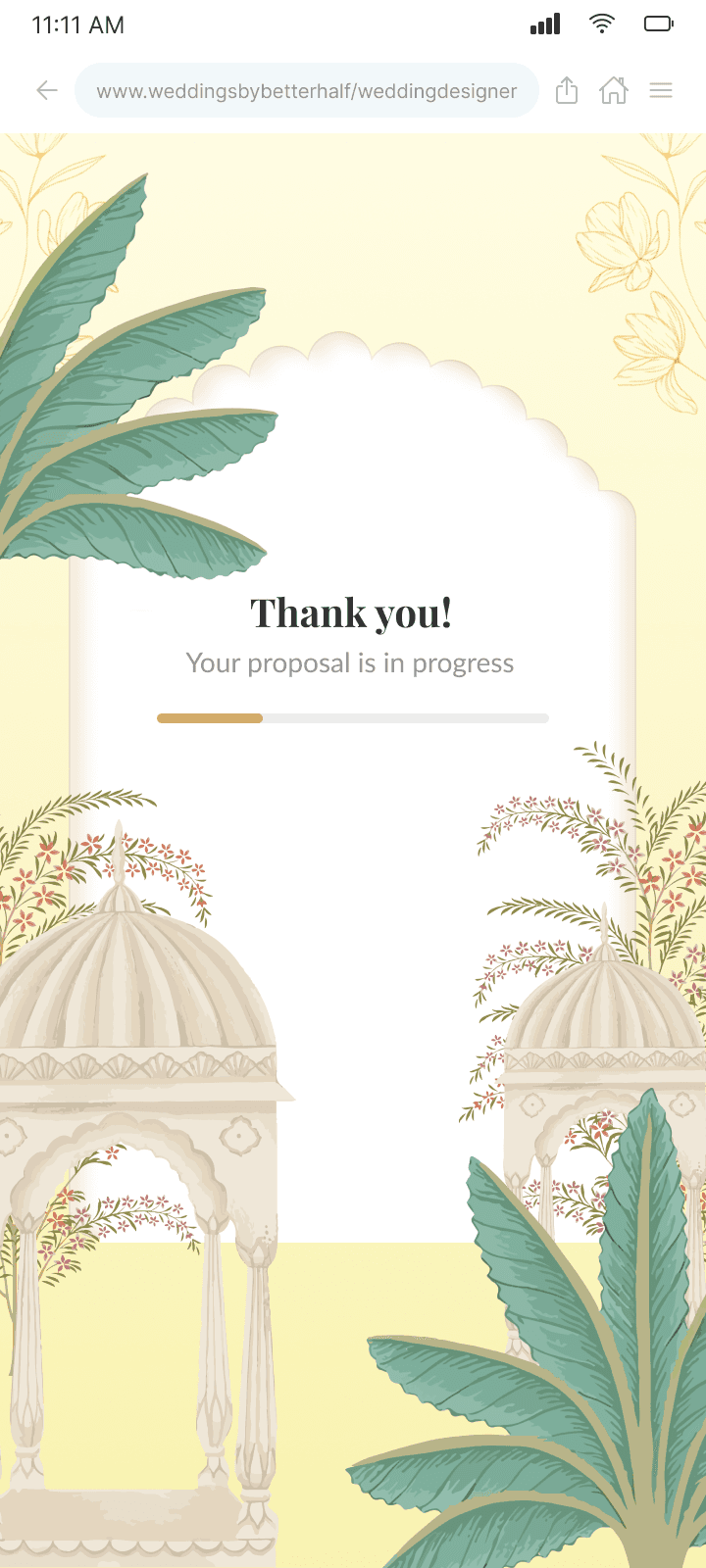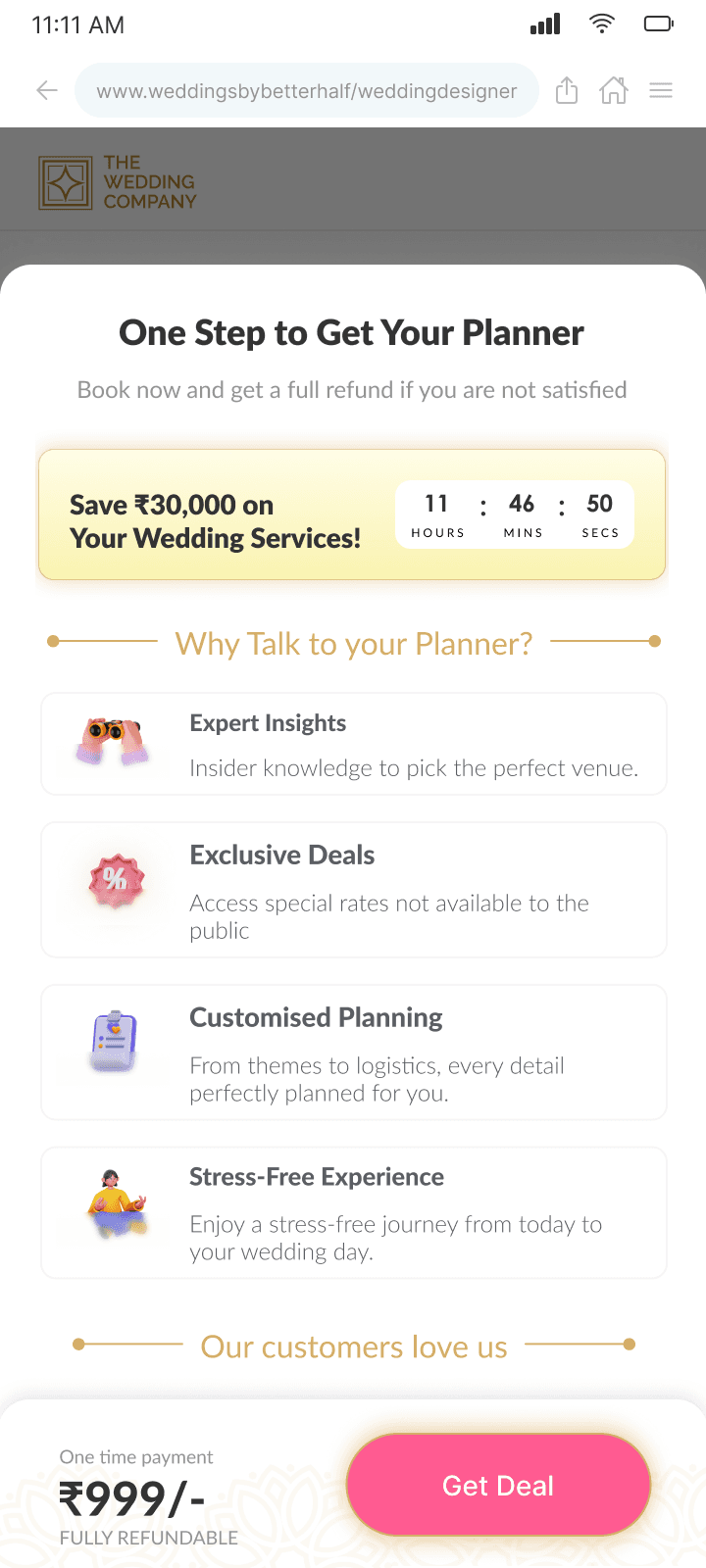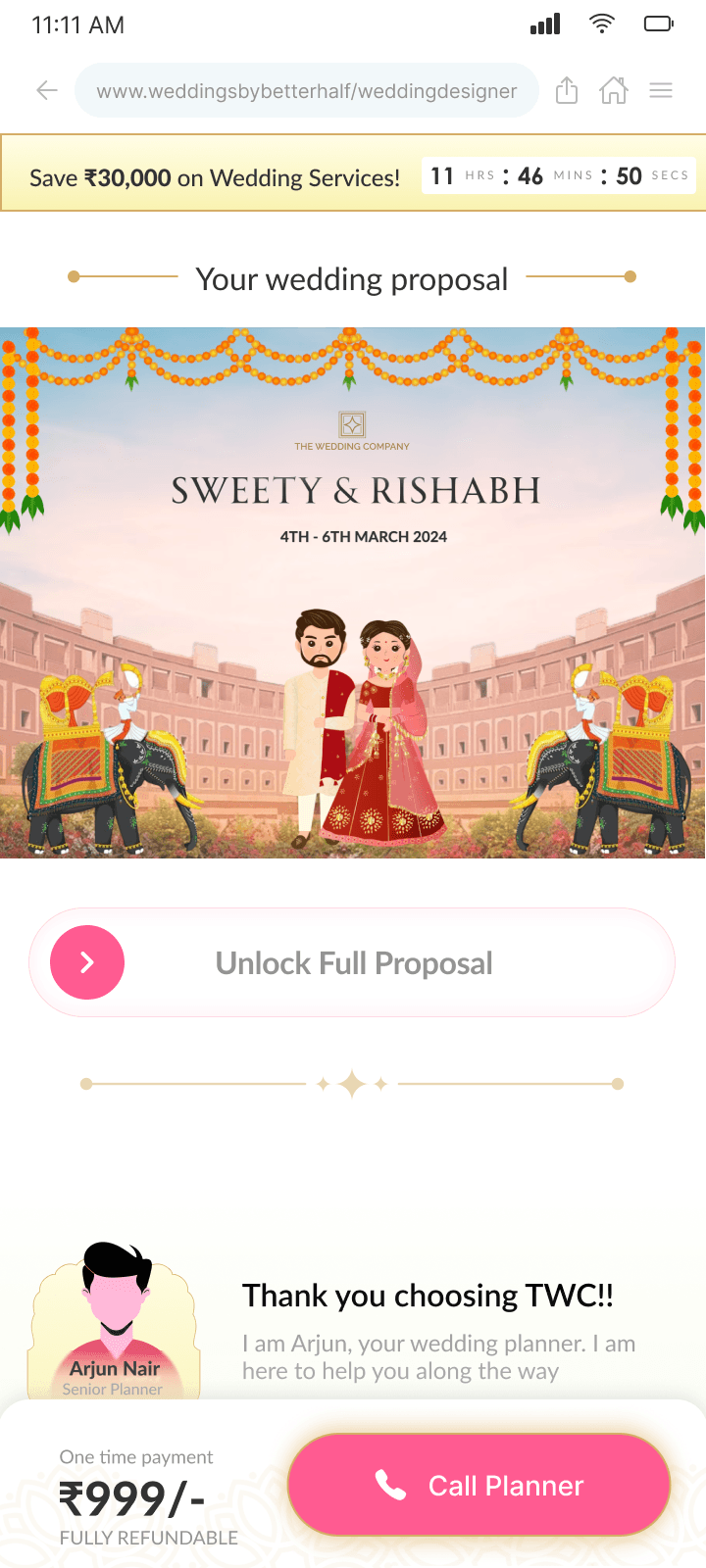Website/Branding/Dashboard The Wedding Co
Redesignong the website, creating a brand identity, and optimizing the requirements capturing process to improve proposal deliveries and client conversions.
Background
My role
UX Design, Web design, Visual design, Branding, Logo design, UX Strategy, Prototyping
Team
2 Designers, 1PM,
4 Engineers
Timeline
3 months
01
The Wedding Company
Before
After
Problem
Betterhalf's association with matchmaking hindered its positioning as a wedding expert. The brand also struggled to position itself among the competition.
Many different offerings, disconnected flow, lacking focus
Not focused on capturing leads
Visual disconnect with aesthetics associated with Indian weddings
Unclear brand positioning
Goal
The goal of the homepage was to establish The Wedding Company’s brand and eventually collect leads.
Establish expertise in weddings
Demonstrate process and value
Capture attention and collect leads
Immersive
Simple process breakdown
Value proposition
Branding
We conducted branding workshops and user surveys to find the perfect balance. We debated between being aspirational and quirky like Cred or timeless and trustworthy like Tanishq. The target audience was identified as urban brides and grooms, or their parents.
We positioned the brand as luxurious, to capture people’s aspirations, and timeless to evoke trust. The final logo resembles a havan-kund to signify piousness and seriousness in a clean, modern way.
Impact
Daily visits on the homepage increased by 14%.
Leads generated from lead forms, whatsapp and calls increased by 21%.
Clicks on the sticky CTA increased 2.5x.
Average engagement time decreased from 70s to 50s, possibly indicating efficient user journeys.
02
Wedding Planning Tool
Problem
The initial process for clients to get their proposal was very Operations-heavy and error prone.
Operational Heavy Model: The process involved numerous calls by the LQ team, leading to a disorganized workflow that consumed significant time and resources.
Prone to Human Error: Despite the multiple calls, proposals often contained inaccuracies due to miscommunications.
Lack of Tracking: There was no platform for clients to track the progress of their proposals, view updates, ask questions or address their concerns.
Research insights
We listened to many calls between planners and clients, primarily those who had not paid the booking amount. There were frustrations with incorrect proposals and our inefficient ways of collecting and delivering information. This also helped us figure out the questions we needed to ask and issues we needed to address.
Questions were being asked repeatedly in multiple calls, and some proposals were still incorrect.
People do not mind paying the booking amount, provided the outcome is personalised.
People are only interested in answering questions if they think are assured it will amount to something.
Goal
Reduce the number of calls and the time between lead and proposal delivery.
Reduce errors by asking the right questions.
Address clients’ pain points by showing relevant information during the pre-proposal stage.
Help users visualize different wedding budgets and explain the need for a planner.
Get context, give tips
(Build trust)
Gather details
(Scale, no. of rooms etc)
Loader screen
(Each answer has value)
Visualize budget
(TWC is already at work)
Shortlisting perfect venues
(Personalized suggestions)
Show a few venues
(Instant value, get taste)
Qualitative data
(Refining the list)
After submitting answers
Tracking and value addition
Prompt
Locked proposal ready
Impact
Impact
The wedding planning tool has been a significant success, leading to a 12% increase in conversions since launch and continues to undergo refinements based on usage.

